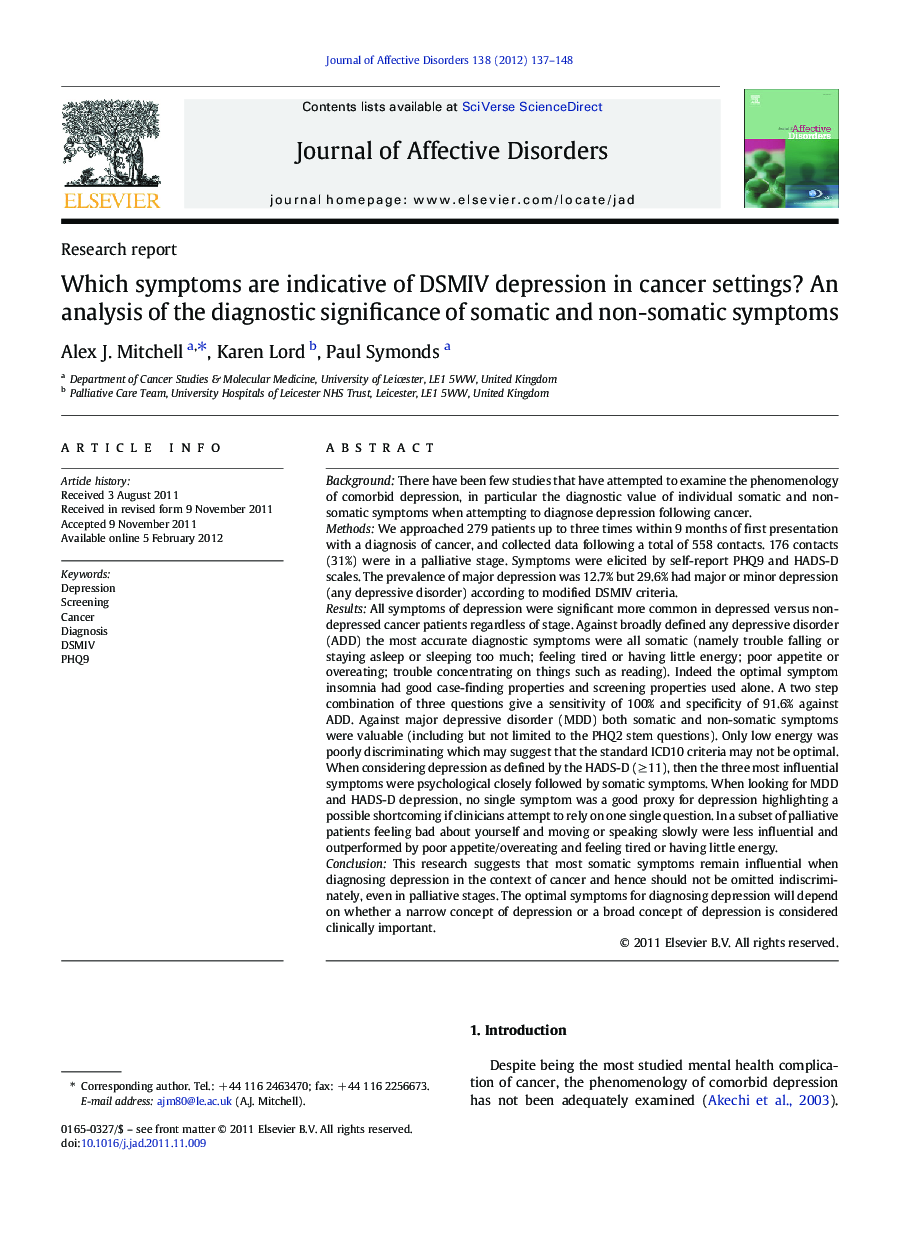| کد مقاله | کد نشریه | سال انتشار | مقاله انگلیسی | نسخه تمام متن |
|---|---|---|---|---|
| 6235091 | 1608181 | 2012 | 12 صفحه PDF | دانلود رایگان |

BackgroundThere have been few studies that have attempted to examine the phenomenology of comorbid depression, in particular the diagnostic value of individual somatic and non-somatic symptoms when attempting to diagnose depression following cancer.MethodsWe approached 279 patients up to three times within 9 months of first presentation with a diagnosis of cancer, and collected data following a total of 558 contacts. 176 contacts (31%) were in a palliative stage. Symptoms were elicited by self-report PHQ9 and HADS-D scales. The prevalence of major depression was 12.7% but 29.6% had major or minor depression (any depressive disorder) according to modified DSMIV criteria.ResultsAll symptoms of depression were significant more common in depressed versus non-depressed cancer patients regardless of stage. Against broadly defined any depressive disorder (ADD) the most accurate diagnostic symptoms were all somatic (namely trouble falling or staying asleep or sleeping too much; feeling tired or having little energy; poor appetite or overeating; trouble concentrating on things such as reading). Indeed the optimal symptom insomnia had good case-finding properties and screening properties used alone. A two step combination of three questions give a sensitivity of 100% and specificity of 91.6% against ADD. Against major depressive disorder (MDD) both somatic and non-somatic symptoms were valuable (including but not limited to the PHQ2 stem questions). Only low energy was poorly discriminating which may suggest that the standard ICD10 criteria may not be optimal. When considering depression as defined by the HADS-D (â¥Â 11), then the three most influential symptoms were psychological closely followed by somatic symptoms. When looking for MDD and HADS-D depression, no single symptom was a good proxy for depression highlighting a possible shortcoming if clinicians attempt to rely on one single question. In a subset of palliative patients feeling bad about yourself and moving or speaking slowly were less influential and outperformed by poor appetite/overeating and feeling tired or having little energy.ConclusionThis research suggests that most somatic symptoms remain influential when diagnosing depression in the context of cancer and hence should not be omitted indiscriminately, even in palliative stages. The optimal symptoms for diagnosing depression will depend on whether a narrow concept of depression or a broad concept of depression is considered clinically important.
Journal: Journal of Affective Disorders - Volume 138, Issues 1â2, April 2012, Pages 137-148